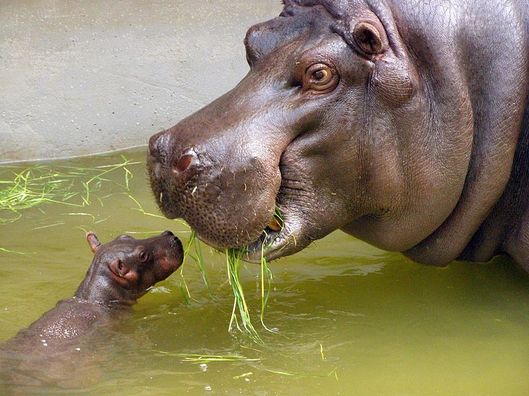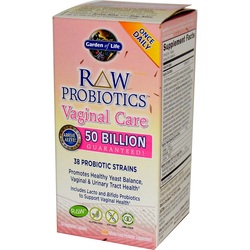
We used to think that our bodies were…well…us. But it turns out they aren’t so much us, as they are them. There are trillions of cells that are the product of our genes–what we think of as our body. And there are hundreds of trillions of micro-organisms that colonize our bodies. Let’s make sure they aren’t the parasitic kind, shall we?
Some of these micro-organisms are beneficial, even necessary. Some are, let’s just say: much worse. We want to be hippos, with adorable little birds picking the goo out of our teeth for their dinner. Not hosts with parasites.
If you’ve heard about all the recent research and hype about the microbiome, it may not surprise you to hear that the bacteria that are present in your body during pregnancy and birth are even more important than they usually are. Your personal microbiome has a significant effect on your health, especially in regards to your immune system, but also the way almost everything else functions.
You get much of your personal make up of bacteria, for better or worse, at birth.
Michael Odent says, “It appears that there is a critical period early in life when gut micro-organisms affect the brain and change behavior in later life.”
Among bacteriologists, the concept of “race to the surface” means that whatever reaches a germ-free surface first will make up the strongest colonization there. (Unlike people, who don’t care who was here first.) So, if the baby is born through the birth canal, the baby will have bacteria like the mother–and father, since he goes there too…wink wink. But if the baby is surgically removed from the mother’s abdomen, it’s not uncommon for the baby to be partially colonized by one of the hospital staff or materials.
A Dutch study showed that babies born vaginally at home were less likely to have eczema, allergies, and athsma (all with known connections to gut composition) compared to babies born vaginally in the hospital. You want your baby to have the family name and the family germs, passed down for generatio ns.
ns.
Your body’s knowledge is incredible. There is a study that shows that vaginal flora changes throughout pregnancy and that towards the end of pregnancy there is a proliferation of the good bacteria, as if preparing to colonize the baby. You can help your body do this more efficiently and with greater success.
You want the good bacteria (such as the kind in yogurt) and don’t want the bad (such as group b strep). Taking probiotics or eating foods that contain probiotics will increase the good and therefore help push out the bad. Lowering your consumption of sugar and processed foods (which the bad ones love) will help kill off these bad biotics. Anti-biotics will kill them all, and the bad ones are most likely to get a foothold straight away.
Get The Good Flora
- Eat less sugar. Considerably less. Bad bacteria love them.
- Eat less white flour (it turns into sugar).
- Eat fermented foods. Especially ones you make yourself.
- Eat yogurt and kefir. Not Yoplait (see item one).
- Take a probiotic. A good one from the fridge section. I discovered these raw Garden of Life brand ones at Whole Foods, specially made to support good vaginal flora.
- No antibiotics in pregnancy or labor.
Give Your Baby The Good Flora at Birth
- No antibiotics in pregnancy or labor.
- Have a vaginal birth
- Use your own linens/clothing at the hospital.
- Minimize touching of the vaginal area during labor by caregivers.
- Breastfeed.
- Skin to skin contact.
- Don’t bathe the baby for at least 24 hrs.
- Minimize handling of the baby in the first weeks by non-family members.
Lack of the Good Flora Appears to Contribute to:
- ADHD/ADD
- Autism
- Obesity
- Type-2 Diabetes
- Asthma
- Allergies
- A host of digestive issues
- Psychological issues
- Autoimmune disease
Get The Good Flora–the extra crunchy way
- Do all the above and
- Use vaginal probiotic suppositories/goo as well (see below)
You can get commercial probiotics for your va jay-jay or read the following:
“It is essential to prepare your birth canal for the baby, which is something women used to do in traditional societies. In order to prepare the birth canal you need to populate it with beneficial flora. To do that every day after your bath or shower apply a handful of your *homemade yoghurt or kefir all over your genital area, as well as all over your breasts and armpits. Let the kefir or yoghurt dry on you before dressing up. Once a week insert a capsule of a good quality probiotic into your vagina at bedtime (alternatively you can use a piece of cotton wool soaked in kefir or yoghurt as a tampon, inserted into the vagina for a few minutes). As those areas get populated by beneficial flora, they will be protected from anything pathogenic, and when your baby goes through the birth canal it will acquire beneficial flora from you. Populating your breasts and armpits with good bacteria will help to prevent mastitis and supplement your baby with probiotics, so carry on with this procedure after your baby is born.” Dr. Natasha Campbell-McBride, author of the book Gut And Psychology Syndrome



